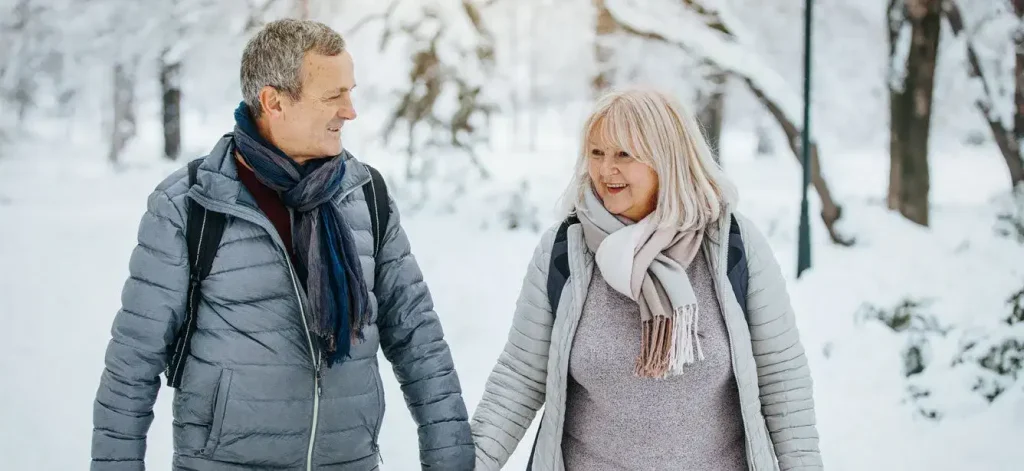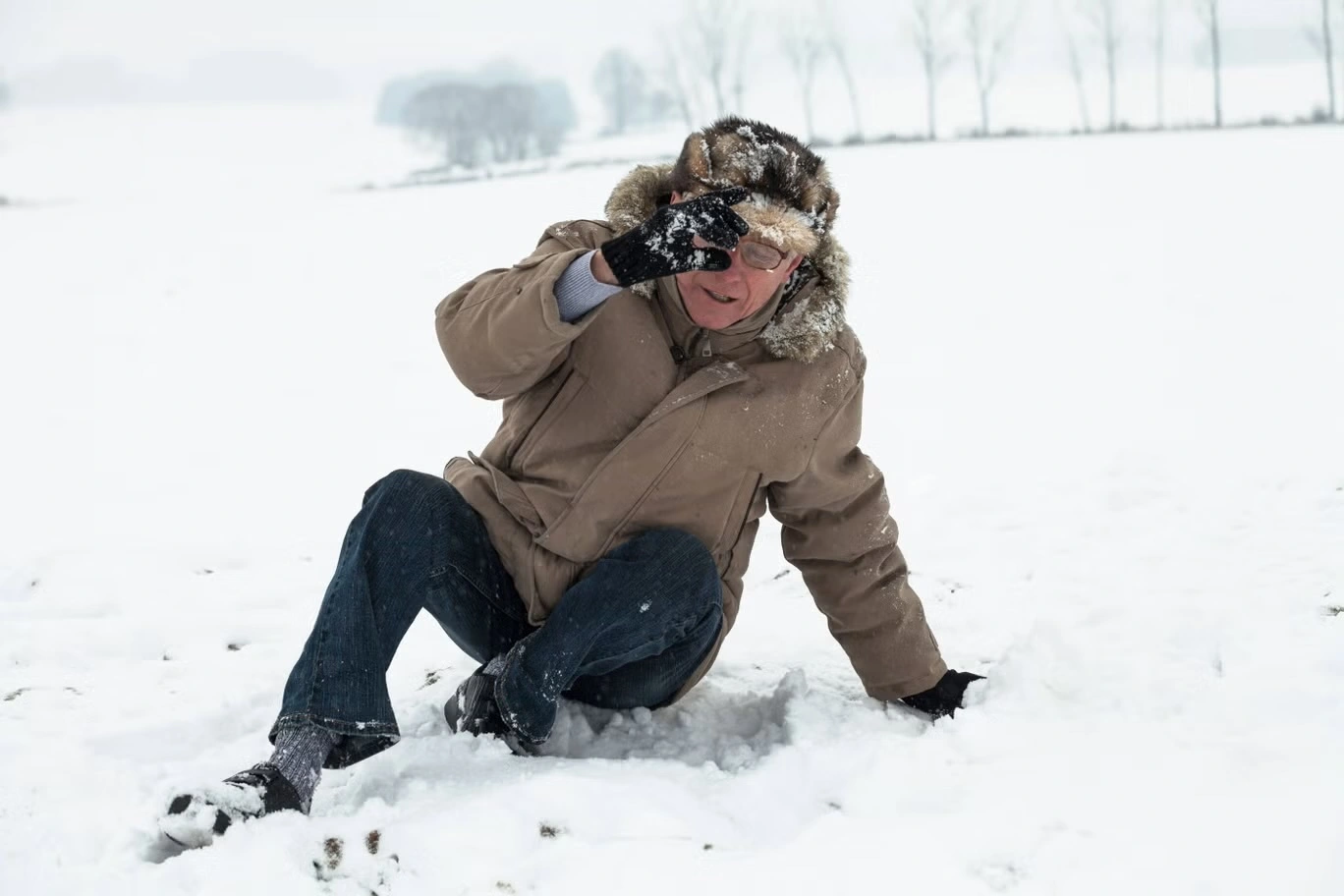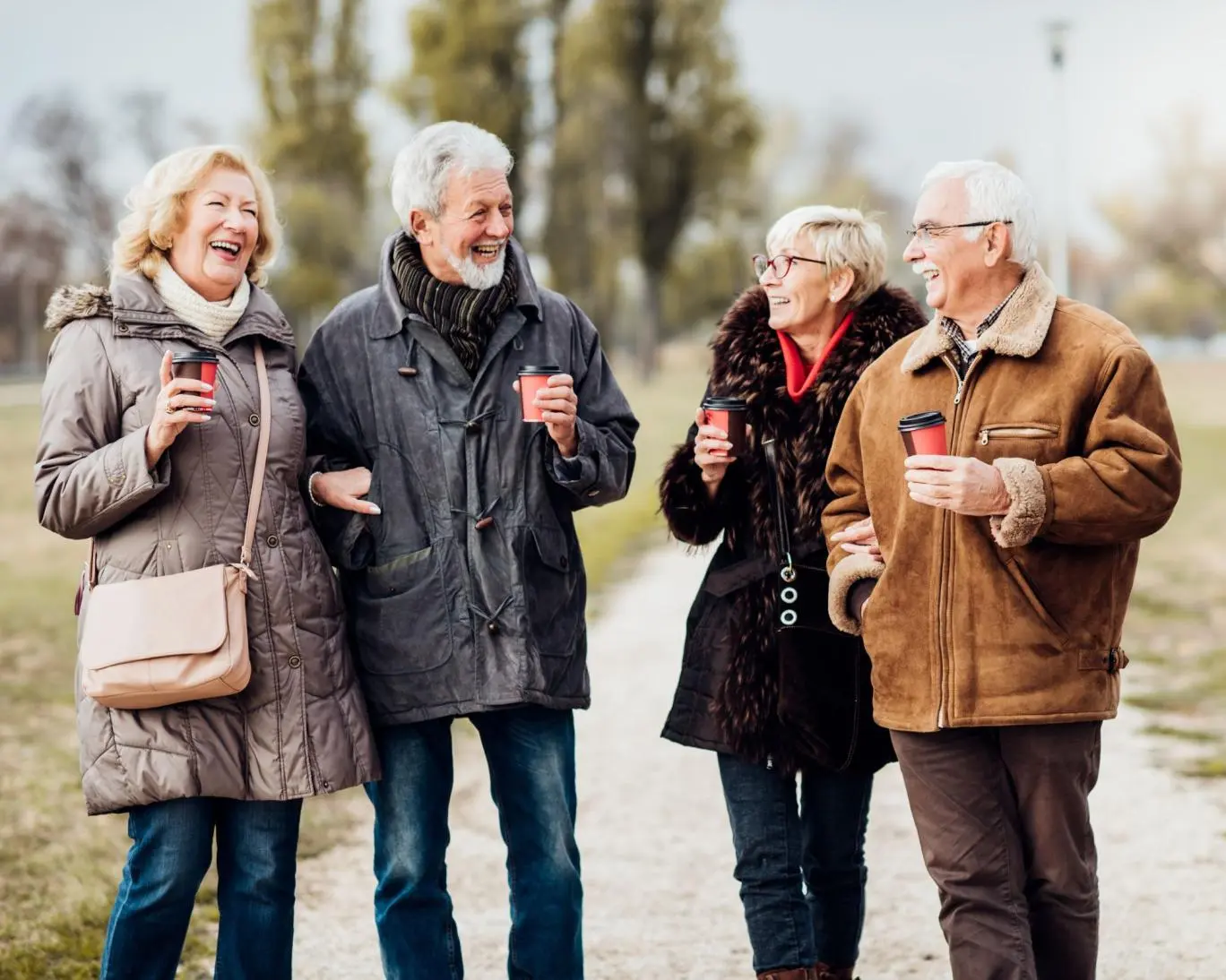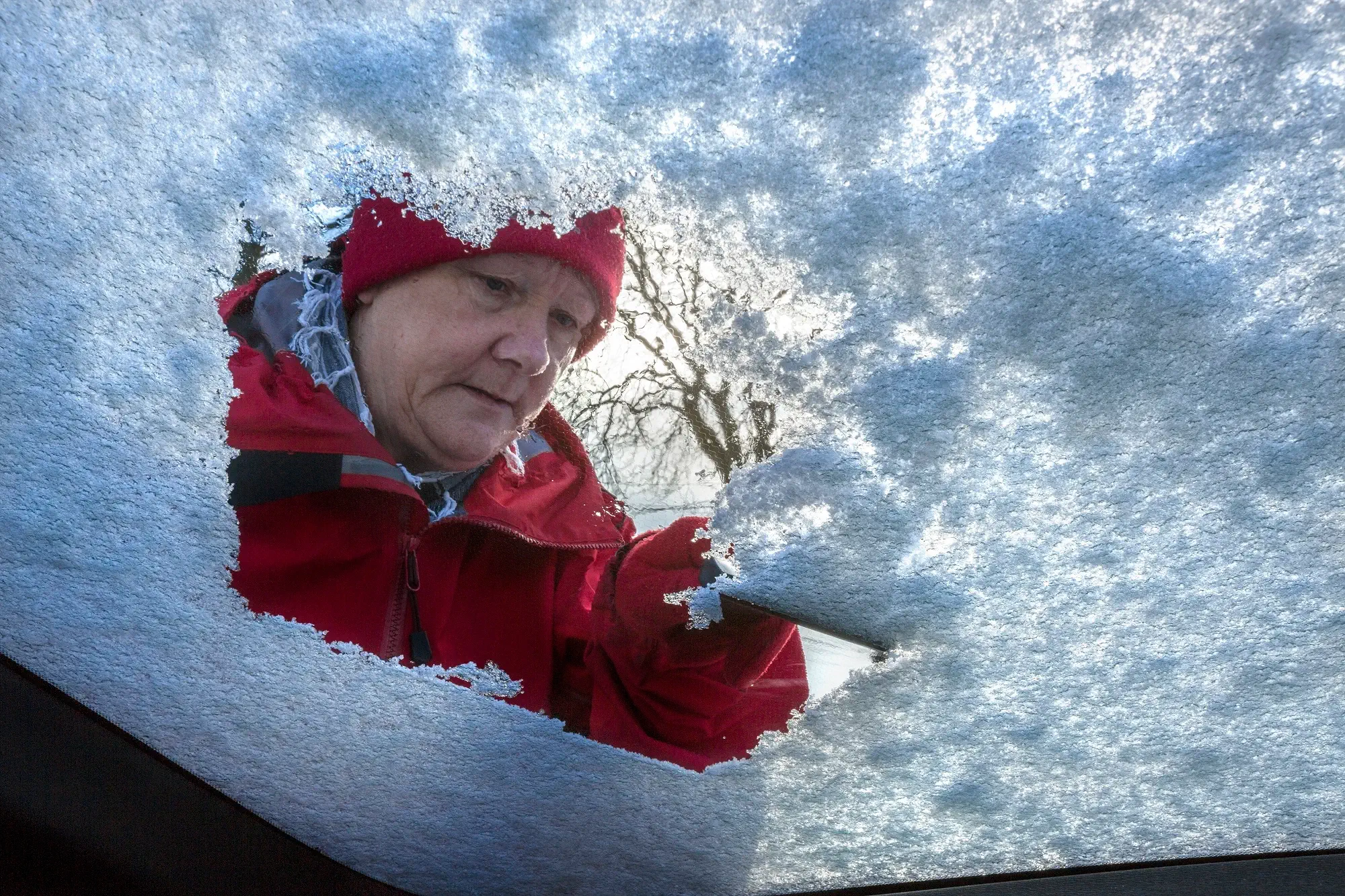
What is Cold Weather Safety for Older Adults?
Do you know the principles of cold weather safety for older adults? As the weather gets colder, everyone, especially the elderly and children, needs special care. Taking care of the elderly in the cold prevents them from contracting diseases. Being in low or zero-degree temperatures can be harmful to anyone of any age. In the meantime, the elderly need more care than other people, and in addition to themselves, those around them should also follow some tips.
If you want to avoid getting sick in the fall, following some tips will help. Also, observing personal hygiene will largely protect you from contracting respiratory diseases; because most respiratory diseases are transmitted through contaminated objects. In the following article from humanhealthmag, we will examine some common health problems that usually occur in the fall and also provide some Winter Care Tips for the Elderly.
Caring for the Elderly in Cold Weather
Hypothermia, frostbite, falls, and slips are among the most common problems in caring for the elderly in the cold season, and people should learn the principles of cold weather safety for older adults. The bodies of elderly people who are exposed to cold environments for a long time lose their natural heat. In these conditions, the body temperature drops to a dangerous level. Elderly people naturally suffer from hypothermia (low temperature) due to old age. Symptoms of hypothermia in the elderly include:
- Confusion
- Drowsiness
- Feeling weak
- Difficulty walking
- Slow heart rate
- Feeling very tired
- Cold and pale skin

To prevent hypothermia and effectively care for the elderly during cold seasons, it is essential to follow some tips.To prevent this situation, it is better for older people to stay at home more during the cold seasons. Also, when they are outside, they should cover their mouth and nose against the cold. Older people should definitely wear warm clothes. In addition, these people should keep their homes at a temperature above 18.5 degrees. As we said in hot weather safety tips for older adults, older people need more care in cold and hot weather.
Cold Weather Safety for Older Adults
One of the most important Cold Weather Safety for Older Adults is taking care of your eyes in cold weather. If your eyes are itchy, red, and watery, it could be a sign of a cold. You can take a few warm baths or use eye drops to treat this problem. However, if your eye pain worsens or you experience blurred vision, you should see a doctor immediately.
As the nights get longer, some people may experience mood swings and increased anxiety. Having a healthy diet along with vitamin D supplements can help combat this problem. Try to include exercise in your daily routine, which also boosts serotonin levels. If you feel depressed, it is best to talk to a professional doctor for help. Other Winter care tips for the elderly include:
- Stay Warm: Seniors are at higher risk of health problems and weather-related injuries when temperatures drop. As a result, you should cover up when you feel cold. Wearing gloves, socks, scarves, wool hats, or anything that keeps you warm and comfortable is one of the most important principles of cold weather safety for older adults. Taking care of your body is especially important for older adults, whose immune systems are weakened and more susceptible to illness.
- Stay Active: Winter is often a good time to stay in bed and sleep for a long time; but staying active and connected with others is one of the most important principles of winter safety tips for older adults and can be mentally beneficial for older adults. Any type of exercise can increase heart rate, regulate blood flow, and help eliminate winter blues, lethargy, stiffness, and pain. Physical activity for seniors also causes sweating, eliminates toxins, and maintains healthy skin. Exercises like yoga or any type of physical activity will strengthen your immune system against seasonal illnesses like the flu and colds.
- Stay hydrated: You are naturally less thirsty in the winter than you are during the rest of the year. However, dehydration can also lead to dehydration due to the lack of moisture in the air. Water helps flush out toxins from our bodies, carries nutrients to our cells, and helps maintain fluid balance in the body. So make sure you drink plenty of water. Another tip for cold weather safety for older adults is to keep your home warm and humid.

Role of Nutrition in Cold Weather Safety for Older Adults
One of the most important principles of cold weather safety for older adults is to take care of the nutrition of the elderly. The elderly are always more at risk of malnutrition than other age groups. Malnutrition threatens the elderly more in cold seasons. Malnutrition increases the incidence of diseases such as colds and flu in the elderly. To take care of the elderly in the cold, we must strengthen their immune system. The following foods help strengthen the immune system of the elderly:
- Consume soup daily
- Consume milk and dairy products
- Being physically active
- Consume all main meals
- Consume vegetables in steamed form
- Increase the number of meals
- Consume various types of meat, seeds and grains rich in fiber
- Consume at least three meals from the four food groups
- Consume the fruit and vegetable group, consume oranges, lemons, grapefruits, potatoes, carrots, pumpkins, spinach, cabbage and broccoli
Prevention of Common Cold Season Diseases
One of the most important cold weather safety for older adults is prevention of common cold season diseases. As they age, the body of the elderly undergoes physiological changes that make them more vulnerable than other age groups. This vulnerability becomes more apparent in the cold season, which is accompanied by a decrease in temperature and climate changes. Just as children need special care, the elderly also need special attention and careful planning to maintain their health. In the following, we will examine common cold season diseases and explain their prevention and treatment strategies.

- Reducing knee pain with massage for seniors: In the cold, blood flow to the knee joints decreases and in the elderly who suffer from arthritis, inflammation and knee pain intensify. Using topical anti-inflammatory ointments, gently massaging the joints to increase blood flow, and wearing warm clothes to prevent symptoms from worsening are some of the tips that should be followed.
- Cough and Cold: Colds are one of the most common cold-season illnesses that, although usually not dangerous, can severely affect older adults. Cold weather safety for older adults includes drinking warm fluids and resting, taking painkillers and fever reducers, and washing your hands frequently to prevent the spread of the virus.
- Flu: Flu is especially dangerous for the elderly, children, and people with respiratory illnesses. Common symptoms of flu include fever, severe cough, and muscle aches that can make it difficult to move. To prevent it, get an annual flu shot, take antiviral medications prescribed by your doctor, drink plenty of fluids, and get plenty of rest.
Concluding Remarks
In this article, we talked about cold weather safety for older adults. In general, seniors need special care during the cold season to stay safe from common diseases of this season. Following nutritional tips, simple preventions, and timely visits to the doctor can be very effective in maintaining the health of seniors. Taking care of seniors in the cold is not only a human duty, but also helps maintain their quality of life.
Also, staying hydrated, eating properly, and exercising can be a good way to stay healthy in winter. Winter has long been associated with illness, so you should definitely take the necessary measures to maintain your health.
We’re curious to hear your thoughts! What’s your take on this topic? Comment below and join the conversation; your opinion could spark new ideas!

Frequently Asked Questions
Why Are Seniors Always Cold?
There are a few reasons for this. First, being cold all the time can be a sign of a medical problem. This can range from diabetes to high blood pressure. Some medications can also make you feel cold. For example, beta blockers, which are used to slow your heart rate, also reduce blood flow to your feet and hands. As you age, your blood vessel walls lose their elasticity, reducing blood flow. The layer of fat under your skin that helps you stay warm also decreases. As a result, your metabolic response to cold decreases as you age.
What is Hypothermia in the Elderly?
Hypothermia is a drop in body temperature caused by exposure to cold temperatures. This drop in body temperature can be life-threatening. When it comes to the causes of hypothermia in the elderly, the most common is exposure to cold. If an elderly person is out in the cold for a long time and does not wear appropriate cold weather clothing, their body temperature will drop. Additionally, medical conditions such as diabetes and thyroid conditions can lead to hypothermia.
